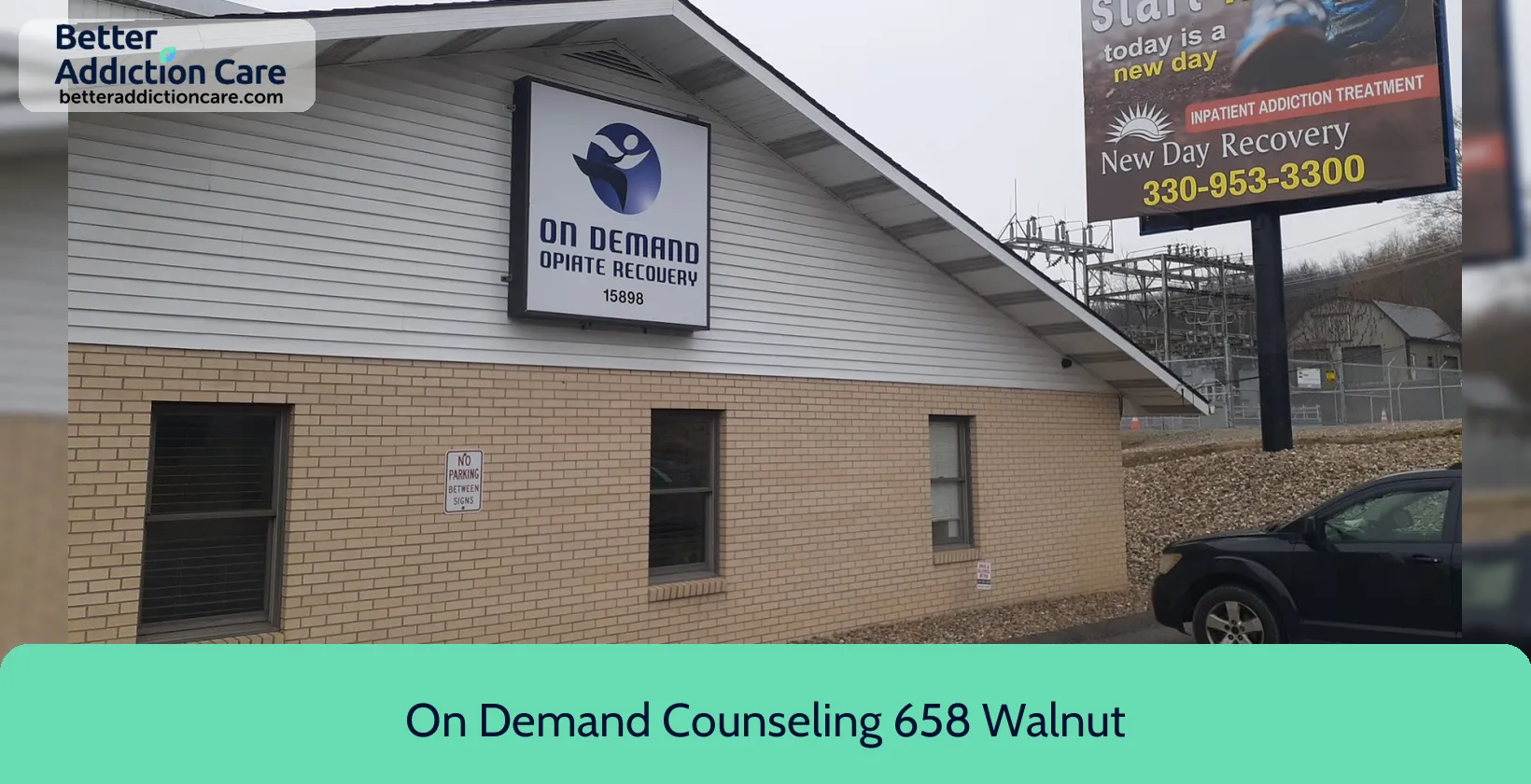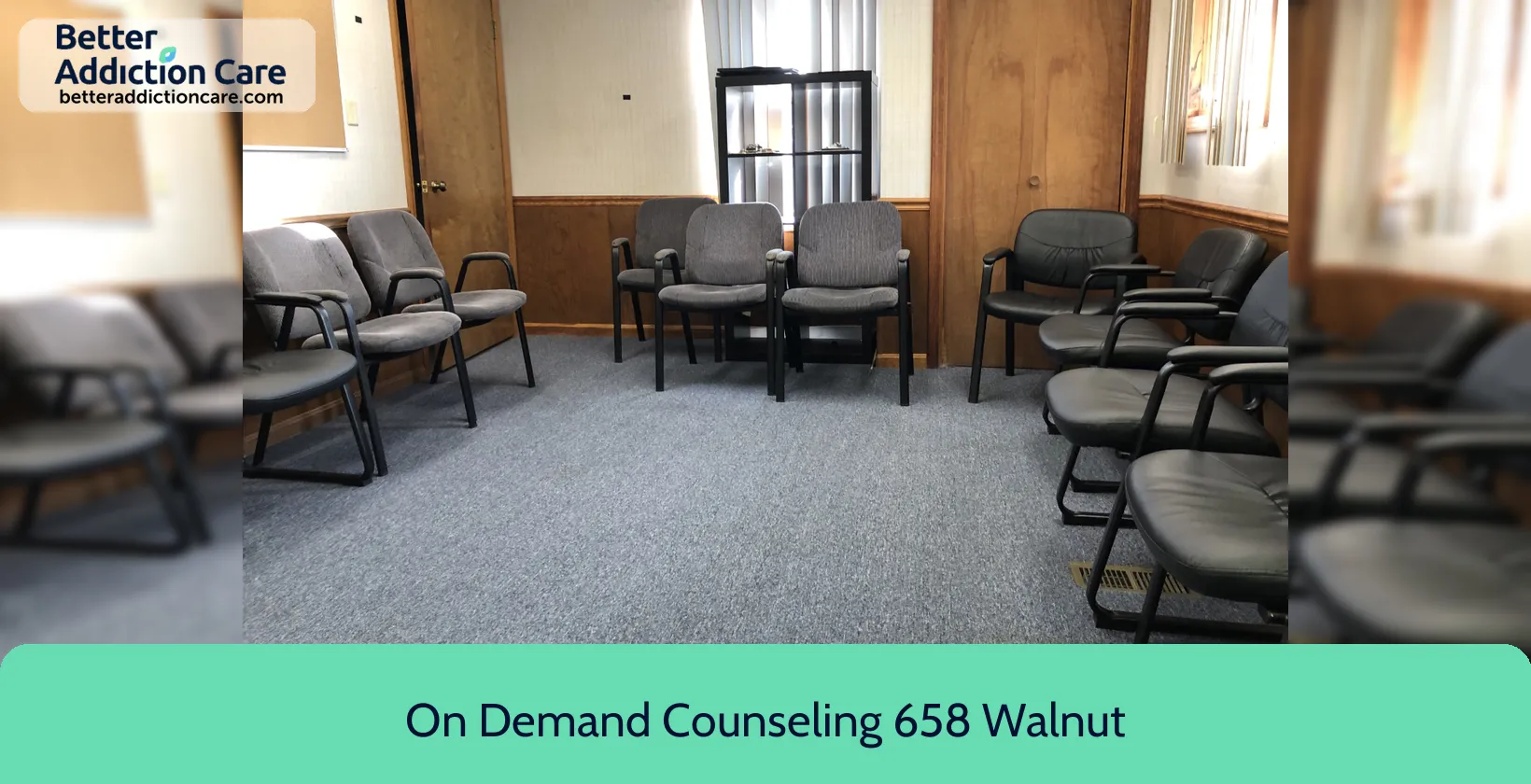On Demand Counseling 658 Walnut Street
Overview
On Demand Counseling 658 Walnut Street is a mental health treatment center for people seeking treatment near Columbiana County. As part of their treatment modalities for recovery, On Demand Counseling 658 Walnut Street provides group counseling, cognitive behavioral therapy, and dialectical behavior therapy during treatment. On Demand Counseling 658 Walnut Street is located in East Liverpool, Ohio, accepting cash or self-payment for treatment.
On Demand Counseling 658 Walnut Street at a Glance
Payment Options
- Cash or self-payment
- Medicaid
- Medicare
- Private health insurance
- Federal military insurance (e.g., TRICARE)
Assessments
- Screening for tobacco use
- Comprehensive mental health assessment
- Comprehensive substance use assessment
Age Groups
- Young adults
- Adults
- Seniors
Ancillary Services
- Case management service
- Court-ordered outpatient treatment
- Family psychoeducation
- Integrated primary care services
- Suicide prevention services
Highlights About On Demand Counseling 658 Walnut Street
6.65/10
With an overall rating of 6.65/10, this facility has following balanced range of services. Alcohol Rehabilitation: 8.00/10, Drug Rehab and Detox: 6.00/10, Insurance and Payments: 6.00/10, Treatment Options: 6.61/10.-
Alcohol Rehabilitation 8.00
-
Treatment Options 6.61
-
Drug Rehab and Detox 6.00
-
Insurance and Payments 6.00
Treatment At On Demand Counseling 658 Walnut Street
Treatment Conditions
- Alcoholism
- Mental health treatment
- Substance use treatment
- Co-occurring Disorders
Care Levels
- Outpatient
Treatment Modalities
- Group counseling
- Cognitive behavioral therapy
- Dialectical behavior therapy
- Telemedicine/telehealth therapy
- Smoking/vaping/tobacco cessation counseling
Ancillary Services
Additional Services
- Pharmacotherapies administered during treatment
- Mentoring/peer support
- Metabolic syndrome monitoring
Contact Information
Read our Most Recent Article About Drug Addiction
DISCLAIMER: The facility name, logo and brand are the property and registered trademarks of On Demand Counseling 658 Walnut Street, and are being used for identification and informational purposes only. Use of these names, logos and brands shall not imply endorsement. BetterAddictionCare.com is not affiliated with or sponsored by On Demand Counseling 658 Walnut Street.










